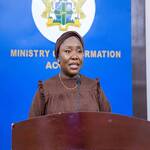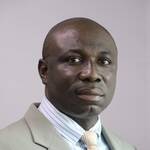The Minister for Information, Fatimatu Abubakar, has officially inaugurated the third cohort of the Media Capacity Enhancement Programme (MCEP) at the University of Media Arts and Communication (UNIMAC) in North Dzorwulu.
The programme, aimed at equipping media professionals with advanced skills, is a crucial step in strengthening the role of the media as the fourth estate in Ghana’s democracy.
100 Journalists participate in the Third Cohort
Some 100 journalists, comprising 40 in-person attendants and 60 virtual participants, are taking part in the third cohort.
200 Journalists already trained
Already, 200 journalists—100 in each of the first and second cohorts—have benefited from the training.
At the end of the third cohort, the total number of beneficiaries will rise to 300.
Launched in January 2022, the MCEP aims to provide media professionals with the skills necessary to advance the nation’s development.
Participants, including reporters, producers, social media executives, and media critics, were selected by an independent working committee.
The MCEP is set to conclude on Friday, September 13, 2024.
Media’s vital role
In her opening remarks, Madam Abubakar emphasized the importance of the media in nation-building, highlighting that a well-informed and capable media is vital to Ghana’s democratic process.
She also praised her predecessor, Kojo Oppong Nkrumah, for laying the foundation for the programme, which has become a cornerstone of media training in Ghana.
MCEP as a powerful training tool
Reflecting on the programme’s impact, the Minister noted that the MCEP brand has gained recognition as a powerful tool for improving the work of practicing journalists and has inspired similar training initiatives by the UNDP and the British High Commission.
Participants are expected to engage in interactive discussions and learn from experienced facilitators.
Professionalism and integrity in journalism
Madam Abubakar encouraged them to broaden their skills, stressing the importance of professionalism and integrity in their work.
Key stakeholders, including the Vice-Chancellor of UNIMAC, the Chairperson of the National Media Commission, media association representatives, and various partners, attended the opening ceremony.
PRINPAG urges stakeholders to embrace growth
Jeorge Wilson Kingson, Executive Secretary of the Private Newspapers and Online News Publishers Association of Ghana (PRINPAG), acknowledged the significant capacity-building challenges faced by the media, which sometimes hinder their ability to perform effectively.
Further investment in media training
Albert Kwabena Dwumfour, President of the Ghana Journalists Association, noted that the programme would enhance media freedom and equip journalists to perform their watchdog role more effectively.
Dwumfour expressed hope that the training would prepare participants to provide unbiased coverage in the upcoming general elections.
Importance of accurate journalism
Ken Arthur, Deputy Chief Executive (Services) of the Volta River Authority (VRA) stressed the importance of accurate journalism in informing, educating, and empowering citizens.
In the energy sector, Arthur said, the media plays a crucial role in educating the public on energy conservation, sustainability, and renewable energy solutions.
Professionalism in upcoming elections
Professor Eric Opoku Mensah, Vice-Chancellor of UNIMAC, explained that the primary goal of the training is to foster professionalism among media personnel, especially as the country approaches a competitive election period.
Journalists were encouraged to take advantage of UNIMAC’s short courses to further enhance their expertise and value in the media industry.
Importance of ethical journalism
Ernest Boateng, Vice-President of the Ghana Independent Broadcasters Association, mentioned that participants would learn about accountability, ethical journalism, and balanced news reporting.
Modern reporting challenges
The skills acquired through the three-day training would prepare them for modern reporting, including handling social media influences, combating misinformation, and promoting inclusivity and diverse representation.
Boateng emphasized, “It is crucial to recognize that the strength of the media lies in solidarity, mutual respect for truth and integrity. Together, we can build a media environment that is ethical and reflects the values of society to safeguard its pillars.”
Support from VRA and MTN
The four-day programme, supported by VRA and MTN, is expected to significantly contribute to the career development of participants and the overall media landscape in Ghana.
- Inflation Rate falls marginally to 21.2%in April - 8 May 2025
- Kidnapped victims: Efforts underway to bring them home – CID boss - 8 May 2025
- Thursday, May 8, 2025 Newspaper Headlines - 8 May 2025




